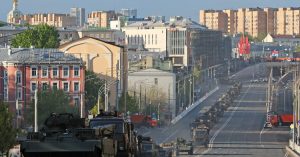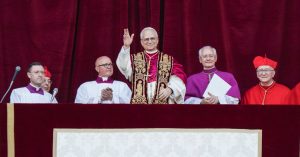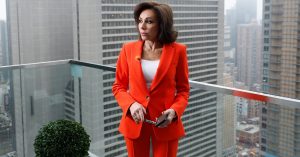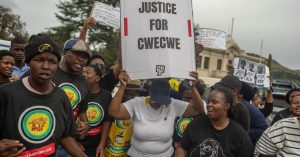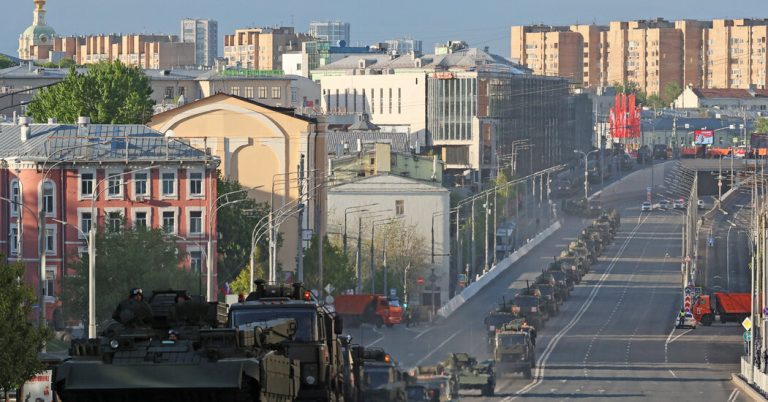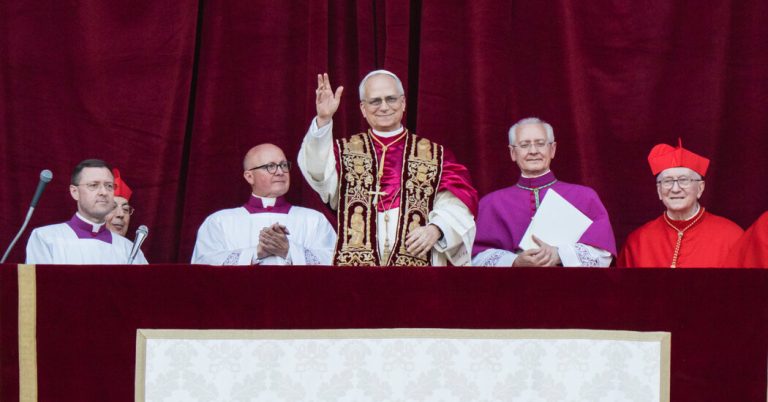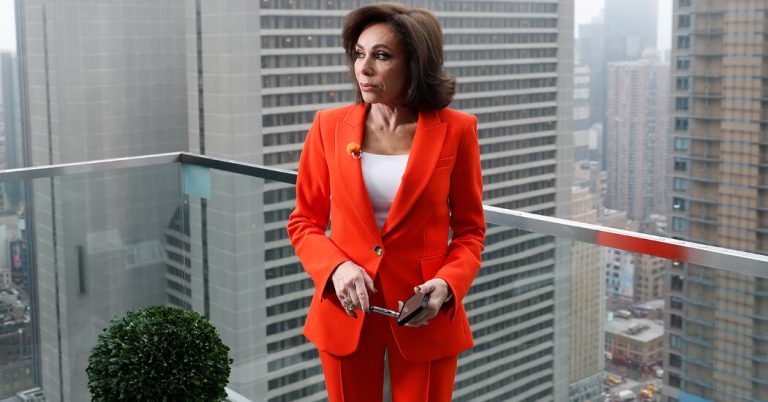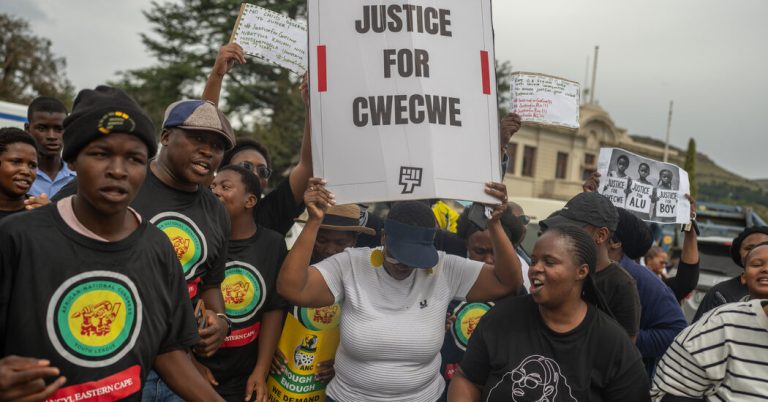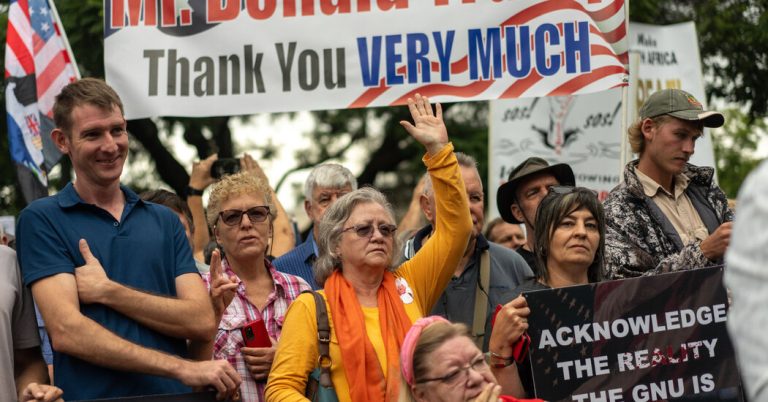WELLINGTON, New Zealand — Craig Watson has spent his life searching for a church that accepts him fully as a gay man. After having left the Baptist church, Mr. Watson thought he had found it within the famously progressive Anglican faith in New Zealand.
Then came what Mr. Watson called a “kick in the guts.” In late July Justin Welby, the archbishop of Canterbury and global leader of the Anglican Church (known in the United States as the Episcopal Church), affirmed as church policy a 1998 statement that rejects “homosexual practice as inconsistent with scripture.”
“We are looking for allies,” Mr. Watson said, “and they are not an ally.”
Divisions over the acceptance of homosexuality have raised doubts about whether the Anglican Church can remain united, a conflict that has played out both on a global level and inside even liberal-leaning countries like New Zealand, where some Anglicans have broken away to preserve traditional teaching.
These tensions have pulled at the Anglican Church, which has 85 million members worldwide, for decades. In 2003, the U.S. Episcopal Church consecrated V. Gene Robinson, an openly gay priest, as bishop of New Hampshire. American Episcopalians underscored this departure from convention in 2015 by permitting same-sex marriages.
Conservative Anglicans, many from traditional African congregations, denounced the moves as inconsistent with the Bible and retaliated in 2016 by suspending the American church from key positions within global Anglicanism. In recent years, however, national churches in Wales, Scotland, Canada, Brazil and Mexico have voted to permit clergy to either officiate or bless same-sex marriages.
The divisions were on display again last month at Lambeth, the Anglican Church’s decennial conference, where the 650 bishops in attendance argued over the treatment of lesbian, gay and transgender Anglicans.
The archbishops of Nigeria, Rwanda and Uganda did not attend Lambeth in protest of “biblical revisionism” by liberal churches. Some other conservatives attended but refused to take communion alongside clergy with same-sex spouses, who were welcomed to the conference for the first time.
Simultaneously, more than 170 bishops — largely from North America and Britain — signed a statement emphasizing the “holiness of LGBT+ people’s love.” Liberal Anglicans challenge conservatives’ interpretation of biblical statements around same-sex relationships and point to, among other things, the Bible’s emphasis on love for others as justification for changing traditional teaching.
Archbishop Welby aimed to bridge the gap. He said at Lambeth that churches with liberal views on homosexuality would not be punished. But he also sought to mollify conservative bishops, who represent a majority of Anglicans worldwide, by affirming the 1998 statement calling homosexuality inconsistent with Scripture.
The archbishop said that for churches in many countries, changing traditional teaching on same-sex relationships “challenges their very existence.” At the same time, he noted, churches elsewhere face “derision, contempt and even attack” if they fail to support gay and transgender worshipers.
That equivalence drew new criticism from liberal Anglicans like Mr. Watson, who is a leader of Diverse Church, an Anglican advocacy group in New Zealand that describes itself as “a network of rainbow Christians.” He left the Baptist church after being pressured into what is known as conversion therapy, a discredited practice that aims to “reverse” the sexuality of gay people.
“I don’t think Justin Welby understands how important it is for L.G.B.T. people to feel affirmed by the Anglican Church,” Mr. Watson said. “He’s willing to put the inclusion of conservative people who reject homosexuality above the inclusion, safety and love” of L.G.B.T.Q. people.
Vicars and wardens from at least one New Zealand parish, St. Peter’s on Willis, wrote to their bishops that “many of our parishioners have suffered a body blow to their sense of belonging, and to their ability to trust our leadership.”
Mr. Watson said that Lambeth “created a massive amount of upset for me,” adding that “it brought all those questions back for me: Am I OK? Am I living a lie?”
He said he also felt it signaled to other Christian denominations in New Zealand that teachings critical of gays, lesbians and transgender people were acceptable. “Anglicanism is well regarded as the most progressive major church in New Zealand,” Mr. Watson said. “Its position signals to other churches that their stances are OK.”
The New Zealand church is known officially as the Anglican Church in Aotearoa, New Zealand and Polynesia, signifying its Maori, general Anglican and Polynesian branches. While the New Zealand Anglican church as a whole, said Peter Lineham, an emeritus professor of religious history at Massey University, “sits very firmly” with more liberal churches in the United States and elsewhere, it is split internally.
The Anglican churches in larger New Zealand cities are often more liberal, while those in rural areas and in Pacific countries that the church also represents, like Fiji and Tonga, are often more conservative.
The New Zealand church compromised in 2018 by permitting bishops to decide whether clergy in their regions could bless same-sex marriages. A minority of New Zealand Anglicans were infuriated by the compromise and split away to form an independent church the next year.
Jay Behan, the bishop for that independent group, denounced the 2018 decision as “anti-Christian and anti-Anglican.”
In an example of how the global divisions over homosexuality have been cemented, Australian Anglicans sought to intervene in New Zealand, even though national churches traditionally avoid interjecting themselves in each other’s affairs, Dr. Lineham said.
At the time, the Sydney diocese said the 2018 decision was “contrary to the teaching of Christ” and urged New Zealand’s Anglicans to divide their church into two branches, one evangelical and one liberal. The Sydney diocese does not bless same-sex marriages or ordain women as priests.
Dr. Lineham said that the archbishop of Sydney at the time, Glenn Davies, had made it clear to New Zealand Anglicans that “this is something to split over.” Mr. Behan and Mr. Davies both said that the interventions did not influence the decision by some New Zealand Anglicans to separate.
Among the bishops who remained within New Zealand’s church, only some permitted blessings for same-sex marriages. The Diocese of Auckland permits them and treats them as an endorsement of such relationships’ morality, for example, while the Diocese of Nelson does not.
Just as they are split over the status of same-sex relationships domestically, Anglicans in New Zealand are divided over what their response to the global controversies should be.
Mr. Watson, who hopes the Anglican Church remains united, called on New Zealand’s bishops to fight more actively to bring conservative churches along on reversing traditional teaching on same-sex relationships and supporting L.G.B.T.Q. people.
“We’ve got New Zealand sitting on our hands doing nothing. We need to throw our hands higher and be a bit louder to be a part of this,” he said.
But Neill Ballantyne, Mr. Watson’s co-leader at Diverse Church, said that Anglicanism’s conservative and liberal wings might be “irreconcilable” — and that a formal split may be good.
“There’s a sadness in that, but a hopefulness, too,” Mr. Ballantyne said. It might allow a liberal church to “explicitly affirm L.G.B.T. people.”
Archbishop Welby himself has wondered aloud whether Anglican unity can be achieved.
“We should seek with passion the visible unity of the church,” he said at Lambeth. “But that is very difficult.”
